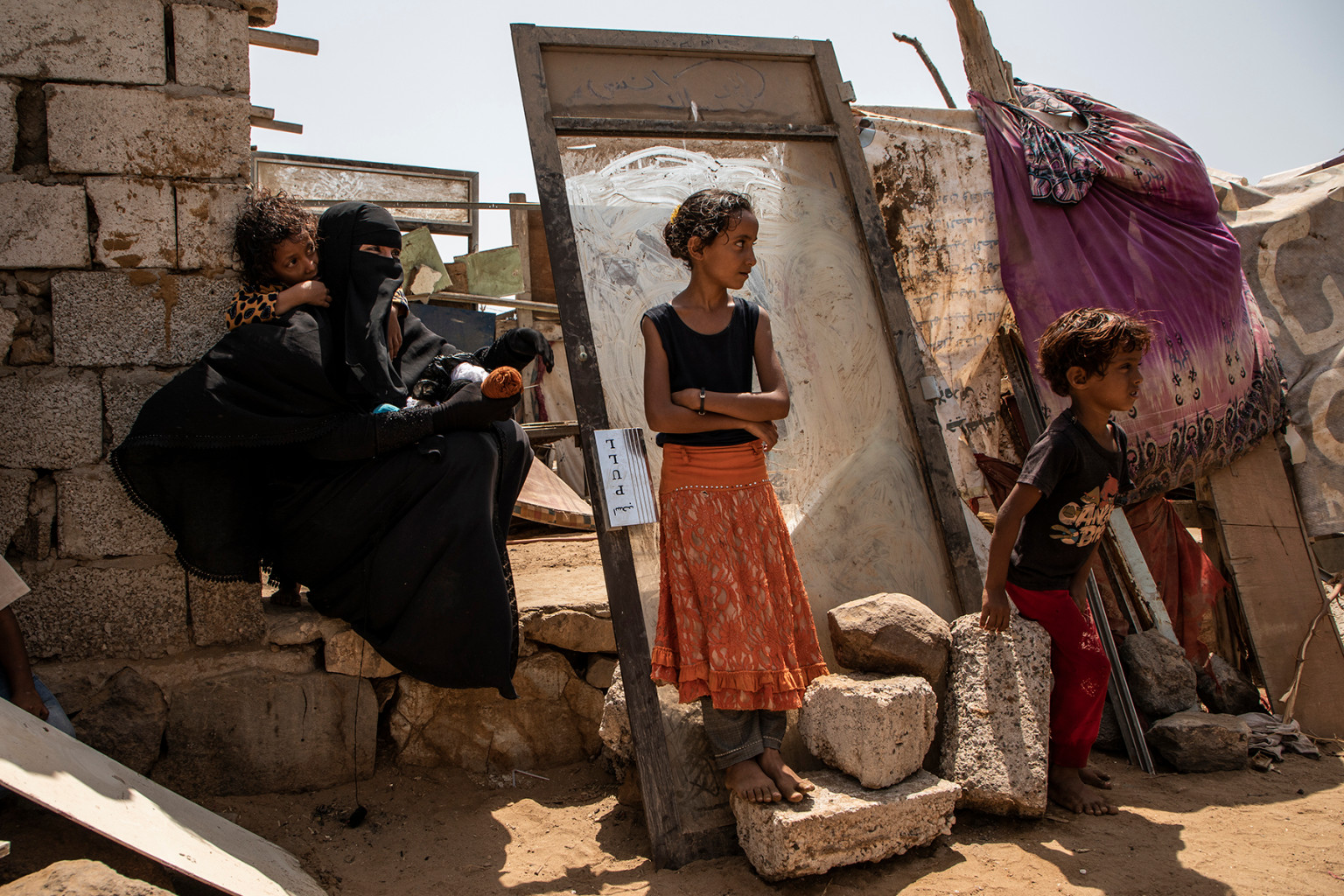In 2011, giant posters of women appeared on billboards, taxis, and buses across Yemen. Some wore colorful hijabs, leaving their faces uncovered, while others wore black niqabs, revealing only their eyes. All flashed giant smiles as they held thumbs up signs with dark purple ink staining the tips of their fingers.
The billboards were part of a United Nations education campaign to support voting referendums in Yemen’s upcoming presidential elections, and to encourage all Yemenis, especially women, to engage with the political process. “Everyone was expecting a new Yemen,” Nisma Mansoor, a Yemeni women’s rights activist, told me as we sat in her father’s home near the once-thriving waterfront of the southern port city of Aden.
But within months, the women’s hopeful smiles had been destroyed—slashed through with angry black markings. It was an early sign of unrest in Yemen that foretold an imminent reversal of the progress that women’s rights activists had made leading up to Yemen’s 2012 presidential election. “Then war came,” Mansoor said, “and everything collapsed.”
After three years of bloody civil war, Yemen is now considered the world’s worst humanitarian disaster. The war has killed at least 10,000 civilians, although the number is likely much higher, and has pushed up to 14 million more to the brink of starvation. Last month, U.S. Secretary of State Mike Pompeo and Secretary of Defense Jim Mattis called on all warring parties to agree to terms for peace talks within 30 days. The deadline has since been pushed back to the end of this year, but the fighting to reclaim Houthi strongholds, including the key port city of Hodeidah, has intensified. So, too, have calls for peace.
But women in Yemen say they are being excluded from critical discussions about rebuilding the nation after war. Yemeni activists say the U.N. and the United States—actors that have committed to the inclusion of women in peace processes—have not insisted strongly enough on women’s participation. Without women, peace in Yemen will be hard to come by. And in the meantime, countless Yemeni women who have been pushed into the role of breadwinner during the war still lack the education and training to get jobs to sufficiently provide for their families.
Read the full article here.



